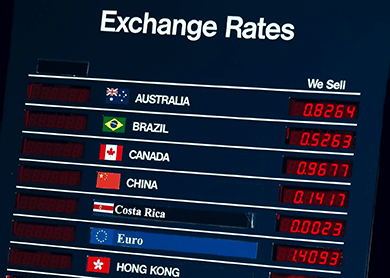
A COMMON misconception among investors is that the bank profits from the difference in exchange rate at the maturity of the contract.
“Let’s say the AUD/MYR rate is 3.00 today, and the customer strikes a deal with the bank to exchange the currency at a strike rate of 2.98,” says Chu Kok Wei, group head of treasury and markets at CIMB Investment Bank Bhd.
“If upon maturity [of the contract], the AUD/MYR market rate is 2.90, the customer would say the bank sold them the AUD at 2.98 when it was actually worth 2.90. This must mean the bank made the 0.08 difference. This is not true.”
Chu explains that what the bank actually does is go to the open market and buy the Australian dollar on behalf of the customer at the pre-agreed rate of 2.98, as per the terms set out in the DCI contract. The bank does not make a profit because it is acting as an intermediary rather than as a broker, who buys and sells shares on behalf of his client regardless of what the share price is.
“We are just an agent who goes to the market to buy the currency at the strike rate of 2.98 to deliver to the customer and conclude the transaction,” he says.
“When the share price dropped, you didn’t lose your money to your broker. You lost your money to whoever sold you the shares,” he adds. “It is the same with us in the intermediation business. When the customer loses money, the bank doesn’t gain. And more importantly, when the customer makes money, the bank doesn’t lose [money].
“The money that the bank makes is upfront — the spread. We make the spread regardless of whether the currency pair is converted or not [whichever currency is stronger or weaker at maturity], regardless of the outcome in market direction.”
High net worth investors
One thing investors should note is that DCIs are not offered to all of a bank’s clients. This is because the smallest change in the price of currencies is four decimal points or 1/100th of 1%, which is also known as a “pip”. This requires a high initial outlay for investors to profit from the exchange rate movements. Hence, banks typically only offer DCIs to their private banking or high net worth clients — usually with a starting capital of RM200,000 or more.
Investors must also keep in mind that sometimes there are additional fees or charges, says Standard Chartered’s Chang. “In order to have a DCI, you will need a deposit account for your ringgit and also the alternate currency. This account may come with fees or charges. For example, if your balance in the account drops below a certain amount, the bank might charge you a fee as set out in the terms of the deposit account.”
Nevertheless, some diversification into foreign currencies is considered prudent, says Citibank’s Leong. “As with any investment decision, a portfolio approach where the investor diversifies his investments with a long-term objective is key. This helps to mitigate market volatility and allows the investor to plan for the long term.
“Investors should be wary of trying to time markets and making decisions on the fly, which leads to speculation. A holistic approach with a view of diversification in their investment portfolios would serve them best. This includes their need for exposure to foreign currencies.”
Risks
DCIs are suitable for those who ultimately have a need for the alternate currency and can accept that their money can be converted at a lower rate. The problem starts when investors chase the higher yield on offer without thinking about the worst-case scenario.
For example, if the investor does not have a need for the alternate currency and has obligations to settle in ringgit, they might suddenly find themselves poorer because it was converted at a weaker rate.
There is also the option of “rolling over” your contract if the currency does not get converted at the desired rate. Investors who want the alternate currency usually choose to roll over their contract as they can enjoy a higher yield from the bank.
Let’s say the spot rate of AUD/MYR is 3.00, and the investor sets the strike rate at 2.90. If the exchange rate rises further and the strike rate is not hit by the end of the one-week tenure, the investor can roll over his contract to another week. The catch here is that the strike rate will be reset to a higher rate, which means the investment will be converted at a more expensive rate.
Alliance Bank’s Tan thinks that rollovers should not be done on a whim. “You do not just roll over indiscriminately,” he says.
“If you are not converted, that means the rate is residing above your strike rate. The risk is that the spot rate will climb higher, and at some point, you will get converted at a higher rate. Investors must be prepared to be converted at a higher rate if they choose to roll over their contract.”
Alternatives
Investors who do not like the returns or terms offered by DCIs can access the FX or options markets directly. Retail options or FX brokers offer individuals the opportunity to execute trades based on their own market views. However, investors must have sufficient knowledge of how these instruments function, as they vary in behaviour, size and capital requirements.
At the end of the day, investors should only put their money in instruments that they fully understand.
This article first appeared in Personal Wealth, The Edge Malaysia Weekly, on April 27 - May 3, 2015.
Save by subscribing to us for your print and/or digital copy.
P/S: The Edge is also available on Apple's AppStore and Androids' Google Play.